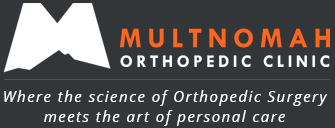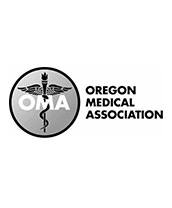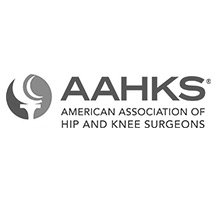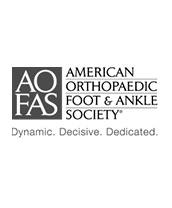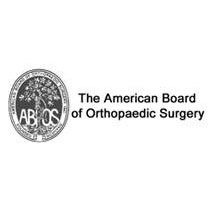Insurance and Payment Options
Method of Payment
We accept cash, check, VISA, MasterCard, Discover, Care Credit, American Express, DOCPAY, and BICMD.
As a courtesy to you we will submit medical claims to your insurance company. Any balance after processing of our claim by your carrier is your responsibility. Your insurance policy is a contract between you and your insurance company. You are responsible for verifying if providers are in-network with your insurance company. We cannot bill your insurance company unless you give us accurate and complete information. It is your responsibility to know your insurance benefits as it may not cover all the services provided to you.
We accept DOCPAY payment plans, which provide an affordable, easy way to pay for healthcare services. Payments are automatically deducted from your checking account each month. Your only cost is a small transaction-processing fee for each payment. No credit approval is required and DOCPAY can be used at any participating office.
Care Credit is another option that we accept, which can help with medical costs with special financing options.
Definitions
Co-Payment: A fixed dollar amount set by your insurance contract that is required to be paid at the time of an office visit. This amount is usually between $15 and $60. All co-pays are due prior to treatment.
Deductible: An annual dollar amount established by your insurance plan that is deducted from insurance benefits.
Co-Insurance: A percent set by your insurance plan that is deducted from your insurance benefits. This percentage usually ranges between 10% and 40% (or more) and is your obligation to pay.
Self-Pay: A patient that chooses to opt out of their insurance plan, or a plan that is out of network.
What if MOC is Out of Network with my Insurance Plan?
Choosing to see an out-of-network physician empowers you to select the doctor you want to care for you, rather than being limited to who your insurance plan dictates. This freedom allows you to prioritize the quality of your care and the doctor-patient relationship, which is at the core of effective treatment. When third-party payers are involved, it often means that your doctor must adhere to their restrictions, which can compromise timely and individualized care.
Another challenge of the third-party payer system is the increased cost and burden it places on physicians. Due to the administrative complexities, it often requires an average of five additional employees per doctor to manage insurance-related tasks. This overhead forces many physicians to see higher volumes of patients just to cover these expenses, leaving less time for individualized care. By opting for an out-of-network physician, you're choosing a more personalized and attentive approach to your health, free from the constraints of a system that prioritizes volume over quality.
Additionally, seeing an out-of-network physician may not significantly increase your costs, particularly if you have a high-deductible plan. You can also utilize your Health Savings Account (HSA) to pay for care from out-of-network providers. For those requiring surgery, the bulk of the costs - typically 80-90% - come from the facility and anesthesia, which are often in-network. Your surgeon’s fee usually accounts for only 10-20% of the total cost, meaning you can still receive affordable care even with an out-of-network surgeon.
Referrals
It is the patient's responsibility to obtain referrals and prior authorizations from an insurance company to Multnomah Orthopedic Clinic. Without this referral, the patient accepts full financial responsibility for all charges. As a courtesy our office staff may assist you with this process. With most health plans, your primary care doctor manages your care, meaning you may need a referral from your primary care doctor for specialty referrals. You may also need prior approval for the service from your medical group or health plan. An approval is also called an authorization. It is important to follow your health plan's rules about referrals and prior approval. If you do not follow the rules, you may have to pay all of the cost of the service yourself.
Work-Related Injuries
We will file workers’ compensation claims with your employer’s workers’ compensation insurance carrier. The claim must be an open and accepted claim. If claim is deferred, you will then be asked to provide your personal health insurance. If your workers’ compensation carrier has not paid your account in full within 60 days of your date of service, the balance will be transferred to your health insurance and any remaining balance will be your responsibility. If Multnomah Orthopedic Clinic’s surgeons are not in-network with your personal health insurance, you will be responsible for any charges should the workers’ compensation claim be denied.
Completion of Forms
You will be asked to pay $35-$45 to receive completed forms, such as: AFLAC, FMLA, return to work, disability, etc.
Returned Checks
Returned checks will be subject to a $50 fee.
Refunds and Surgical Deposit
Overpayment and/or Surgical Deposits will be refunded at the end of your treatment.
Past Due and Collection Accounts
You will receive a monthly statement from our clinic for the remaining balance after your insurance pays the claim. Payment will be expected within 30 days of receipt.
Overdue accounts are defined as any balance over 60 days old from the date of service.
If you are unable to meet your financial obligations, arrangements will need to be made. Please call our business office at (503) 231-1426 (option 7) if you have financial concerns and need to set up a payment plan. If your account is sent to collections, it will be documented in your financial record, and you will not be scheduled for future appointments without approval from the business office.
